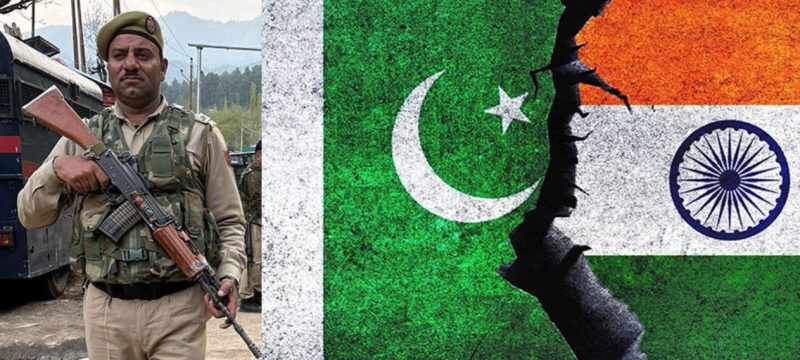Following the devastating terror attack in Pahalgam, Jammu and Kashmir, which claimed the lives of 26 people—including a foreign national—India’s top national security body, the Cabinet Committee on Security (CCS), has unveiled a firm and comprehensive response targeting Pakistan. Investigations have traced the attack back to militant groups believed to be operating from across the border.
In light of these developments, India has initiated a five-point strategic plan aimed at disrupting Pakistan’s influence, limiting diplomatic channels, and securing national interests.
Read more: Deadly Attack in Kashmir: 26 Tourists Killed as Militants Target Resort in Indian-Controlled Region
1. Indus Waters Treaty Suspended
India has temporarily withdrawn from the Indus Waters Treaty, a pivotal agreement signed in 1960 that governs water sharing between the two nations. The suspension will remain until Pakistan halts its backing of cross-border terrorism. This move represents a historic shift in Indo-Pak relations and places significant diplomatic pressure on Islamabad.
2. Closure of Attari-Wagah Border Crossing
India has officially shut down the Attari-Wagah border checkpoint, effectively stopping the transit of people and goods through this major land route. Only individuals with valid travel documents who had crossed prior to the closure will be permitted to return before May 1, 2025. This action is designed to block further unauthorized movement and signal a decisive stance on national security.
3. Cancellation of SAARC Visa Exemptions for Pakistan
India has revoked the SAARC Visa Exemption Scheme (SVES) privileges for Pakistani citizens. All existing SVES visas for Pakistanis have been nullified, and those currently in India under the program must leave the country within 48 hours. This drastic step curtails diplomatic mobility and strengthens India’s position on cross-border security concerns.
4. Expulsion of Pakistani Military Attachés
All Pakistani military, naval, and air advisors stationed at the Pakistani High Commission in New Delhi have been declared Persona Non Grata and ordered to leave India within a week. India will also recall its own military representatives from its High Commission in Islamabad, signaling a significant drawdown in defense cooperation and diplomatic presence.
5. Diplomatic Staff Reduction
India will significantly reduce its diplomatic footprint in Pakistan. The staff strength at the Indian High Commission in Islamabad will be scaled down from 55 to 30 by May 1, 2025. This decision further reflects the Indian government’s intent to scale back bilateral engagements until Pakistan addresses concerns over terrorism.
The CCS meeting, chaired by senior leaders including Home Minister Amit Shah, Defence Minister Rajnath Singh, External Affairs Minister S. Jaishankar, and National Security Advisor Ajit Doval, centered on assessing the security landscape and formulating India’s official response.
On the operational front, Indian security forces have launched an intensive manhunt to capture those responsible for the Pahalgam attack. Preliminary findings indicate that a group of seven armed militants, some of whom are suspected Pakistani nationals, ambushed tourists and opened fire.
Home Minister Amit Shah visited the scene of the attack and met with those injured in the hospital, reaffirming the government’s commitment to justice.
This attack is one of the most severe in the region in nearly 20 years, sparking national outrage and prompting a swift and resolute reaction from New Delhi. India has pledged to bring both the attackers and their backers to justice, asserting that such violent acts will be met with uncompromising consequences.









